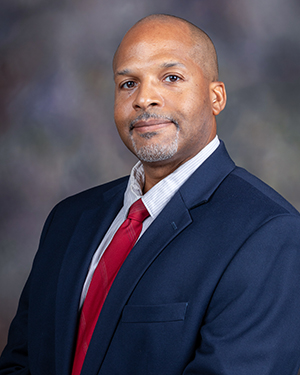

David Garrison, Ph.D.
Associate Dean, Professor and Former Chair of Physics,
College of Science and Engineering
Contact number: 281-283-3796
Email: garrison@uhcl.edu
Office: B3611
Biography
I began my academic career at the Massachusetts Institute of Technology, where I earned a B.S. in Physics in 1997. During this course of study, I minored in earth, atmospheric & planetary science and completed a concentration in political science. I then moved on to The Pennsylvania State University where I completed a Ph.D. in Physics in 2002. Afterward, I accepted a position as a visiting assistant professor at University of Houston–Clear Lake.
After serving as a visiting faculty member for one year, I was promoted to tenure-track. During my time in academia, I earned several awards from organizations including NASA, the Institute for Space Systems Operations, The Alfred P. Sloan Foundation, the Council of Graduate Schools and the Texas Educational Grid Project in addition to several internal grants and scholarships.
During my time on the faculty of UHCL, I served as chair of the Physical Science and
Physics Programs and director of graduate programs for CSE, and twice served as president
of the UHCL Faculty Senate. I successfully developed and oversaw the approval of a
revised bachelor's degree in physical science, a bachelor's degree in physics, an
engineering physics sub-plan, a masters degree in physics, a professional Master of
Physics sub-plan in technical management, and a collaborative Ph.D. program in physics.
My research in computational and theoretical physics consists of work in numerical
relativity and cosmology.
Curriculum Vitae
Areas of Expertise
Various research projects both independently and in collaboration with NASA JSC. Research topics include numerical relativity, cosmology, computational physics and plasma physics. My primary focus is on studying the early universe using numerical simulations.
Publications
- The Universe’s Earliest Moments by David Garrison, Sky and Telescope Magazine, September 2021, 22-27 (2021).
- Numerical Analysis of the Magnetogenesis from early universe phase transitions by David Garrison, Astronomische Nachrichten, ASNA342, Issue 1-2, 75-80, http://dx.doi.org/10.1002/asna.202113884 (2021).
- Relativistic Magnetohydrodynamic Turbulence in the Early Universe by David Garrison, Proceedings of the 10th Chaotic Modeling and Simulation International Conference, International Journal of Nonlinear Science, 102017, 493-498 (2017).
- Extracting Gravitational Waves Induced by Plasma Turbulence in the Early Universe through an Averaging Process by David Garrison and Christopher Rameriz, arXiv:1503.04764, Classical and Quantum Gravity 34, 145008 (2017).
- Numerical Relativity as a tool for studying the Early Universe by David Garrison, Journal of Gravity, vol. 2014, Article ID 407197, 11 pages, 2014. doi:10.1155/2014/407197, gr-qc/1207.7097
- What Every Successful Physics Graduate Student Should Know by David Garrison, Smashwords, 2013
- TESTING BINARY BLACK HOLE CODES IN STRONG FIELD REGIMES: UNDERSTANDING NUMERICAL INSTABILITIES THROUGH COMPUTATIONAL EXPERIMENTS by David Garrison, LAP Lambert Academic Publishing, 2011
- Numerical analysis of simplified Relic-Birefringent gravitational waves by David Garrison and Rafael de la Torre, Classical and Quantum Gravity 24 (2007) 5889
- Gravity Gradients in LIGO: a proposal for Data Analysis by David Garrison and Gabriela Gonzalez, Proceedings of the Tenth Marcel Grossman Meeting on General Relativity, 2006
- Black Hole Spectroscopy: testing general relativity through gravitational-wave observations by Olaf Dreyer, Lee Finn, Ramon Lopez-Aleman, Badri Krishnan, Bernard J. Kelly, David Garrison, Classical and Quantum Gravity 21 (2004) 787-803
Courses (Current Academic Year)
- Mathematical Methods in Physics 1 and 2 (Including an Online version of Mathematical Methods in Physics 1)
- Methods in Computational Physics
- Classical Mechanics
- Electrodynamics
- Fundamentals of Space-time
- Research Seminar
- General Relativity
- Gravitational Waves
Research Projects
Numerical simulations are becoming an effective tool for conducting detailed investigations into the evolution of our universe. I developed a code to perform large-scale simulations of the dynamical processes present in the early universe. These take into account interactions of gravitational waves, magnetic fields and turbulent plasma. The code that I developed is based on the Cactus framework and is structured in order to be very modular so students can focus on one part of the code while treating the rest like a black box.
The primary goal of this work is to utilize the code, which I developed, to study the dynamics of a turbulent relativistic plasma field and calculate the spectrum of gravitational waves it produces. In this computational laboratory, my project team aims to study the dynamics of the turbulent relativistic plasma, the evolution of gravitational waves and magnetic fields in the early universe. Students participating in this project gain experience working with computing clusters, running simulations and visualizing/analyzing data. To date, several undergraduate and graduate students have participated in the project.
Awards and Accomplishments
- Founded the Physics program at UHCL (BS, MS, Collaborative PhD)
- Developed the Collaborative UHCL-UH Physics PhD Program through agreement with the UH Physics Department
- Established the UHCL Physics guest lecture series and Distinguished lecture series
- Developed the Professional Science Masters of Physics: Technical Management Sub-Plan
- Developed the undergraduate Engineering Physics sub-plan
- Developed an advisory board for the UHCL Physics program
- Helped develop the UHCL Computational Physics Laboratory, Physics Teaching Laboratory and Plasma Physics Laboratory
- PI of a multi-university unfunded FAA Center of Excellence in Commercial Space Transportation. The proposal involved 125 participants and was completed in less than one month.
- Co-founded UHCL’s Center for Faculty Development
- Appeared on an episode of “The Universe” on the History Channel.
- Interviewed several times on Television, Radio and the World Wide Web.
- Interviewed for HistoryMakers - ScienceMakers series






